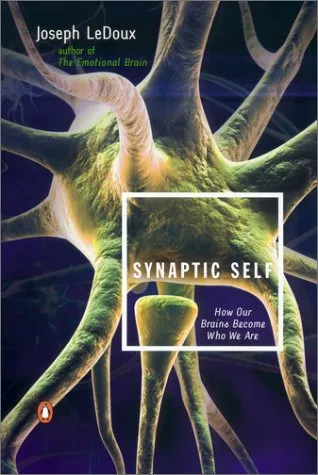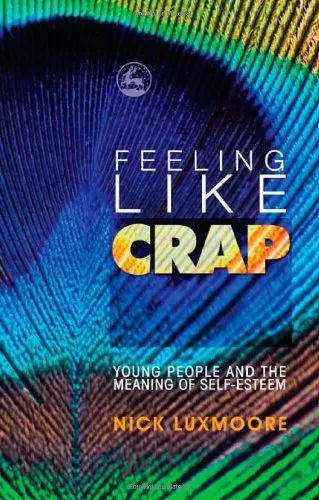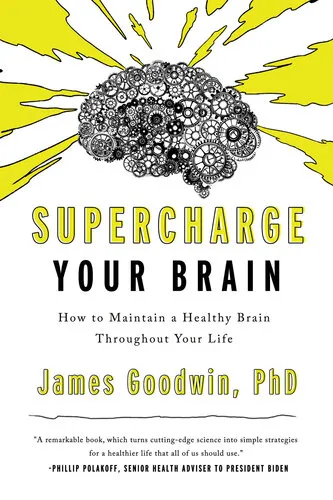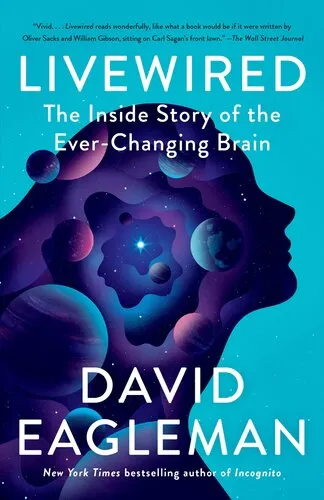Synaptic Self: How Our Brains Become Who We Are
4.5
Reviews from our users

You Can Ask your questions from this book's AI after Login
Each download or ask from book AI costs 2 points. To earn more free points, please visit the Points Guide Page and complete some valuable actions.Related Refrences:
Introduction to Synaptic Self: How Our Brains Become Who We Are
Written by neuroscientist Joseph LeDoux, Synaptic Self delves deep into the relationship between the physical connections within our brain—our synapses—and the very essence of who we are. This groundbreaking book offers an accessible and thought-provoking exploration of how our brains, through dynamic interactions between billions of neurons, create our sense of self, personality, and identity. By combining neuroscience, psychology, and philosophy, LeDoux provides a compelling argument for why understanding the brain at a cellular level is key to answering the age-old question: "What makes us who we are?"
LeDoux explains that the formation of the "self" is not an abstract, spiritual phenomenon but rather a product of intricate brain processes involving synaptic connections. These tiny yet profound neural interactions hold the roadmap to understanding our emotions, behaviors, memories, and individuality. With engaging clarity, Synaptic Self is not just a book about neuroscience—it is a narrative about you, your brain, and the essence of what it means to be human.
Detailed Summary of the Book
LeDoux's key premise in Synaptic Self is that our identity is deeply tied to the brain's synaptic connections. These connections are responsible for forming the experiences and memories that shape our individuality.
The book begins by introducing the science of synapses, which are the communication points between neurons. From there, LeDoux discusses how synaptic plasticity—the brain's ability to change and adapt these connections over time—underlies learning, memory, and emotional responses. He demonstrates that the "self" is not a static entity but a constantly evolving mosaic of neural processes, molded by biology, experience, and environment.
LeDoux takes readers through various layers of the human experience, including emotion, fear, and consciousness, to show how these are rooted in brain activity. Each chapter builds on the idea that our mental states, from our happiest memories to our deepest fears, are encoded in networks of synapses. He draws on both neurological research and psychological studies to illustrate how trauma, attachment, and social interactions leave indelible marks on our brain and, consequently, our sense of identity.
Synaptic Self also challenges traditional views of the self, moving away from dualistic philosophies that separate mind and body. Instead, LeDoux positions the brain as the cornerstone of who we are, arguing that the self is biological, embodied, and emergent.
Key Takeaways
- The brain's synaptic connections form the foundation of our sense of self.
- Synaptic plasticity plays a crucial role in shaping personality, behaviors, and memories.
- The "self" is dynamic and constantly evolving, influenced by experiences, emotions, and social interactions.
- Understanding emotions like fear and happiness requires understanding their neurological basis.
- Our sense of identity is tightly linked to the biology of the brain, challenging dualistic perspectives that separate mind and body.
Famous Quotes from the Book
- "The self is not a thing but a process—a dynamic interaction of synaptic connections in the brain."
- "Your synapses define who you are. They store your memories, your skills, your traits, and your emotional responses."
- "If you want to understand the self, you have to understand the brain at its most fundamental level."
- "The synapse is where biology and experience collide, creating the mosaic of neural identities inside us."
Why This Book Matters
Synaptic Self is a vital contribution to our understanding of human behavior, identity, and consciousness. It bridges the gap between neuroscience and the humanities, offering a framework for exploring the complexities of the human mind. By grounding concepts of identity and the self in tangible biological processes, LeDoux demystifies the brain and makes it accessible to both scientists and lay readers alike.
Moreover, the book encourages readers to reflect on their own lives, offering insights into how memories, emotions, and relationships shape who they become. In doing so, it not only educates but also empowers individuals to better understand themselves and others. Whether you're a neuroscience enthusiast, a psychology student, or simply a curious reader, Synaptic Self provides invaluable tools for exploring what it means to be human.
Free Direct Download
You Can Download this book after Login
Accessing books through legal platforms and public libraries not only supports the rights of authors and publishers but also contributes to the sustainability of reading culture. Before downloading, please take a moment to consider these options.
Find this book on other platforms:
WorldCat helps you find books in libraries worldwide.
See ratings, reviews, and discussions on Goodreads.
Find and buy rare or used books on AbeBooks.
1541
بازدید4.5
امتیاز0
نظر98%
رضایتReviews:
4.5
Based on 0 users review
Questions & Answers
Ask questions about this book or help others by answering
No questions yet. Be the first to ask!










